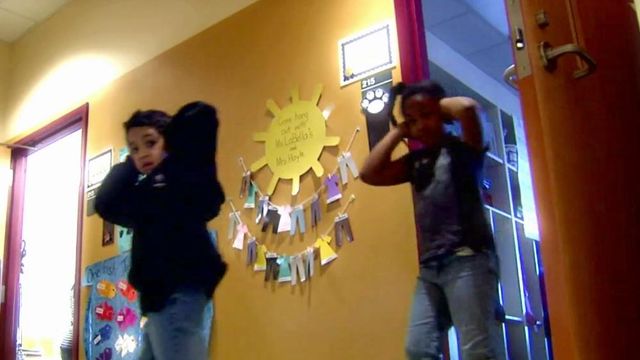Legal loophole allows NC charter schools to forgo safety lockdown drills
North Carolina law requires traditional public schools to practice lockdown drills at least once a year to prepare if an intruder ever came on campus. Yet, North Carolina charter schools, which are publicly funded and privately run, are not required to do the same.
Posted — UpdatedWhile North Carolina has taken major steps to improve school safety, a loophole in the law means some public schools might not be prepared if they ever have to go into lockdown.
North Carolina law requires traditional public schools to practice lockdown drills at least once a year to prepare if an intruder ever came on campus. Yet, North Carolina charter schools, which are publicly funded and privately run, are not required to do the same.
Michelle Bohall, of Holly Springs, said she was shocked to learn her son’s charter school, Southern Wake Academy, hadn’t practiced a lockdown drill in more than two years.
“My biggest concern was how charter schools handled the safety for the children,” Bohall said.
While she applauds what Southern Wake Academy has done for her son academically, Bohall said she was disturbed to learn the school does not do background checks of school volunteers or practice school lockdowns.
Despite mandatory lockdown training for traditional public schools, the same law only "encourages" charter schools to drill.
“I was like, 'Oh my gosh, this is not OK,’” Bohall said.
WRAL Investigates found that some state lawmakers were unaware of the discrepancy.
“I’m glad that you brought it up. There are lots of things we do that we don't even know that we did,” said Rep. Craig Horn, R-Union, who serves as house education committee chair.
Lawmakers intended to give charter schools more flexibility, Horn explained, but “safety is safety is safety.”
“If it's a good idea and it's proven to be a good idea, then yes, let's do it,” he said.
Horn says he’s open to changing the law, but plans to consult with charter school leaders first.
Southern Wake Academy recently purchased a volunteer check-in kiosk to screen visitors.
Charter schools should have a little latitude, according to Rep. Graig Meyer, D-Orange, “but on school safety we should have the same expectations as with traditional public schools.”
To Rep. Billy Richardson, D-Cumberland, it doesn’t make sense that safety measures would be dictated differently to charter schools than traditional public schools.
“We go from over-regulating to under-regulating, and this is a prime example of you just cannot issue a double standard when it comes to taxpayer money,” Richardsonsaid.
“I really, truly believe that we would have had a horrific bloodbath in that school if that school hadn’t taken the action when they did,” said Tehama County Assistant Sheriff Phil Johnston.
At Southern Wake Academy, where Bohall’s son attends, administrators were not willing to talk with WRAL Investigates on camera but provided a copy of the school’s lockdown procedures. After more than a two-year break, the school plans a lockdown drill later this month.
Bohall said she wants the state law to change so all charter schools are required to prepare for the worst.
“They can choose to do the right thing, but they have the choice right now. I have nothing to hold over them to make my child's school safer,” she said.
Although the statute gives charter schools flexibility, each school does have its own locally approved policy on lockdowns and safety procedures, according to Rhonda Dillingham, executive director of the N.C. Association for Public Charter Schools.
"I believe in today's climate, charter school leaders would agree that safety is a primary concern. That is why it is required summer training at the N.C. Center for Safer Schools," Dillingham said in a statement.
At the N.C. Department of Public Instruction, “several staffers in the Office of Charter Schools say they know that many charter schools conduct lockdown drills on a regular basis,” according to Drew Elliot, the agency's communications director.
"We encourage parents of charter school students to contact their school's administration and ask about their policies and practices,” Elliot said.
By law, charter schools are also encouraged, but not required to provide schematic drawings to law enforcement and create a School Risk Management Plan. Those are required for traditional public schools.
Related Topics
• Credits
Copyright 2024 by Capitol Broadcasting Company. All rights reserved. This material may not be published, broadcast, rewritten or redistributed.






